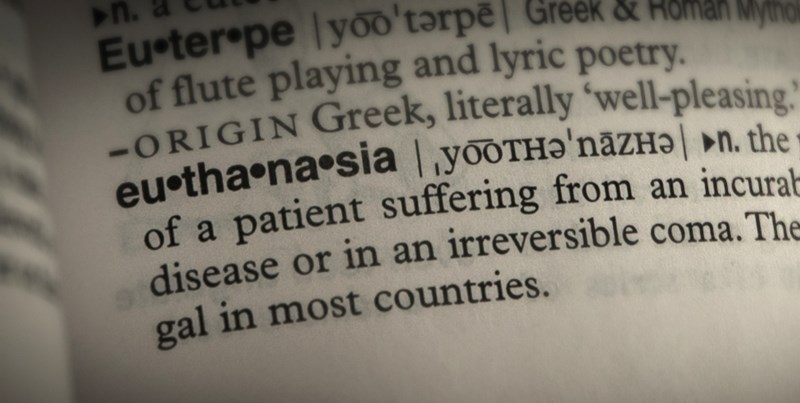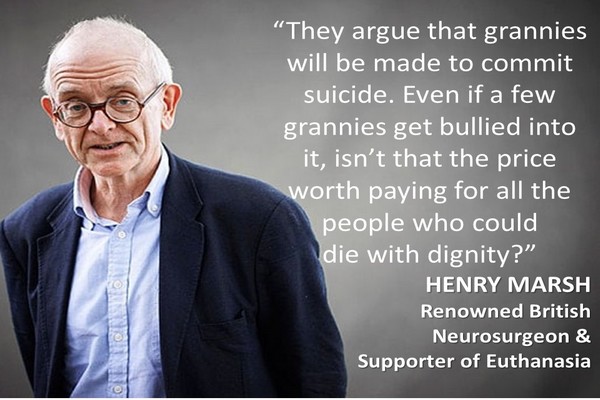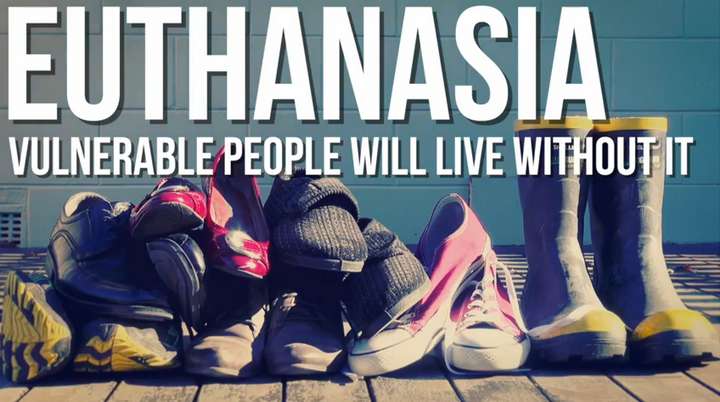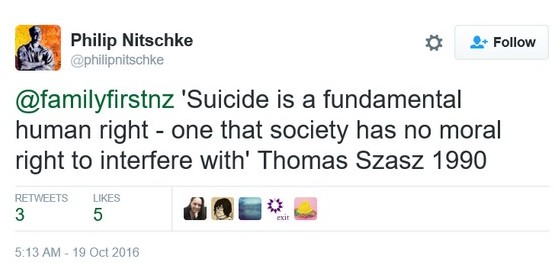
NZ Herald 15 December 2017
Family First Comment: “I am a palliative medicine physician with 28 years experience in caring for patients and their families at the end of life. I am affronted by the fact that a politician would imply he understood the finer details of medicine and medical treatment better than me or my colleagues. To Mr Seymour I say, how dare you accuse my profession and my colleagues of illegal practices. How dare you confuse quality and ethical care with the intentional ending of a person’s life. What makes you think you know better than the World Medical Association or the New Zealand Medical Association?… Politicians do great harm to the perception of medical practice, and instil unnecessary fear and anxiety in the minds of the public, by promulgating, on national television, incorrect, misleading and unsubstantiated statements.”
www.PROTECT.org.nz to make a submission
In support of his bill that seeks to change the law in New Zealand, David Seymour claims, “It is ok if a doctor intentionally ends your life by giving you too much morphine and claiming that’s a double effect. All that is ok. All that happens without any regulatory safeguards whatsoever.”
I am a palliative medicine physician with 28 years experience in caring for patients and their families at the end of life.
I am affronted by the fact that a politician would imply he understood the finer details of medicine and medical treatment better than me or my colleagues.
To Mr Seymour I say, how dare you accuse my profession and my colleagues of illegal practices.
How dare you confuse quality and ethical care with the intentional ending of a person’s life. What makes you think you know better than the World Medical Association or the New Zealand Medical Association?
It is unacceptable that such uninformed statements go unopposed. For too long we have retained our professional discipline and shown restraint by not reacting publicly to such loose and ill-informed pronouncements. It is unfortunate to even repeat what has been said, but I do so to explain my justified outrage.
We do not intentionally end the lives of our patients by giving too much morphine. We train under strict supervision according to national and international standards of excellence in the discipline and science of use of morphine and other drugs for symptom control.
Morphine is not used to euthanise people in Netherlands or Belgium, morphine is a very effective analgesic in patients suffering from moderate to severe pain and it is safe in the hands of medical prescribers who are trained as we are in its use.
There is no evidence that doctors are using morphine to kill patients in New Zealand.
There are extensive safeguards in the training and practice of medicine. The correct titration of all the drugs we use to relieve symptoms and minimise side-effects is at the heart of training in palliative medicine.
More and more these days such training occurs at undergraduate and postgraduate levels for all doctors, including GPs and hospital doctors.
Politicians do great harm to the perception of medical practice, and instil unnecessary fear and anxiety in the minds of the public, by promulgating, on national television, incorrect, misleading and unsubstantiated statements.
If Mr Seymour knows he is incorrect, then he is misleading the people. If he does not know that he is incorrect, then he is quite simply showing his abject lack of knowledge on this topic.
• Dr Sinead Donnelly trained as a specialist in general and palliative medicine in Ireland, Scotland and USA. She has worked in Wellington since 2008.
READ MORE: http://www.nzherald.co.nz/nz/news/article.cfm?c_id=1&objectid=11959454

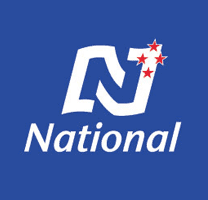
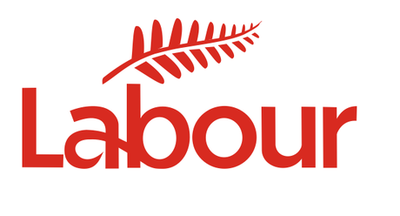

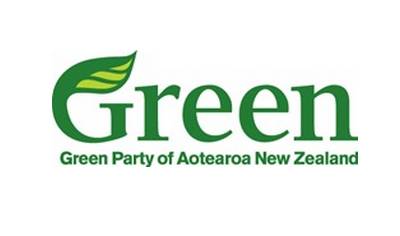 YES (All MPs!)
YES (All MPs!)

